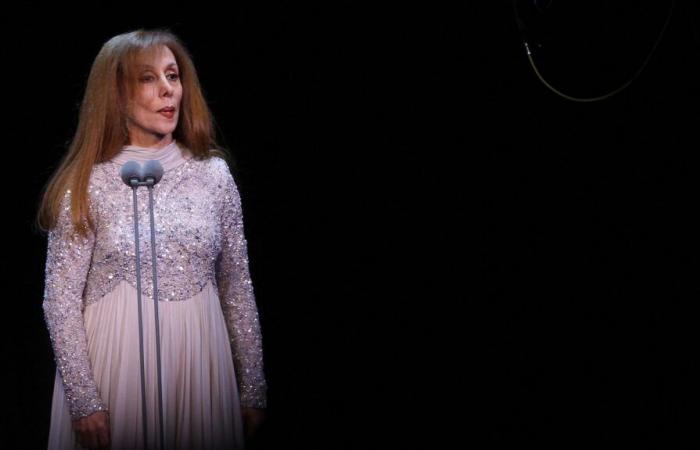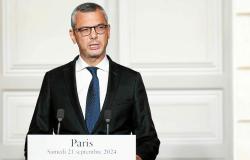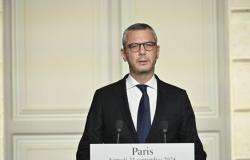The singer Fairouz, iconic voice of the Arab world, celebrated her 90th birthday on Thursday, November 22, while her country, the Lebanon that she sang so much about, is torn apart by a deadly war between Hezbollah and Israel.
Internet users flooded social networks with his songs, celebrating this rare figure of unity in a deeply divided country. For their part, the Lebanese media, all sensibilities combined, paid him a strong tribute.
In 2020, during a visit to Beirut, French President Emmanuel Macron went to Fairouz's home to present him with the Legion of Honor. “To the one who embodies the soul of this region with dignity, a happy birthday”he wrote on Instagram on Thursday.
On Facebook, the famous Lebanese composer Marcel Khalifé greeted the diva with these words: “The voice of Fairouz is my country.”
After a career that took her from the stages of Beirut to those of Paris, London and Las Vegas, Fairouz retired from public life for more than ten years. In 1999, she declared in an interview with New York Times : “When you look at Lebanon today, you see that it looks nothing like the Lebanon I sing about.”
During the Civil War, she moved an entire nation with Bhebbak ya Lebnane (“I love you, O Lebanon, my country”), a song that has become a timeless symbol. His repertoire not only exalted Lebanon, but also love, freedom and Palestine.
Real name Nouhad Haddad, Fairouz was born in 1934 into a modest Christian family in the Zokak el-Blatt district, hit on Monday November 18 by an Israeli strike. Discovered by the composer Halim al-Roumi on the radio, he gave her his pseudonym. In the 1950s, she married Assi Rahbani, who, with her brother Mansour, revolutionized Arab music by mixing oriental rhythms and Western, Russian or Latin American classical influences in modern orchestration. Fairouz's career took off after his first performances at the Baalbeck International Festival, held in the heart of the ancient ruins, now hit by bombs.
Revered by previous generations, Fairouz has also become an icon for young people, thanks to her son Ziad, “the terrible child” of Lebanese music, who composed pieces with jazz accents. “When you listen to Fairouz, you feel Lebanon, with all its contradictions and its beauty”he said. Symbol of a collective memory, Fairouz remains the voice that transcends borders and eras.






